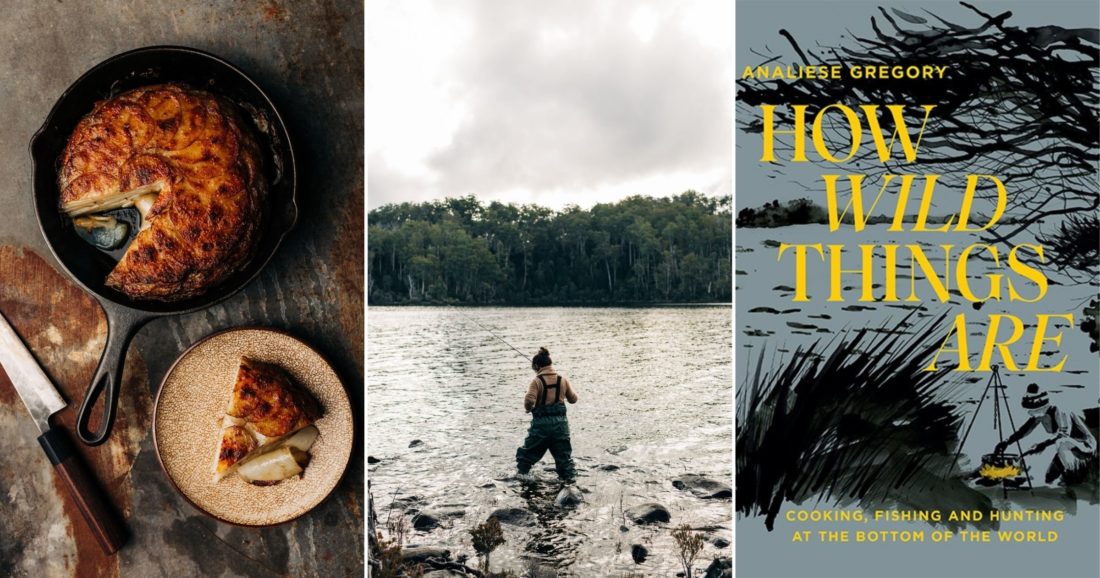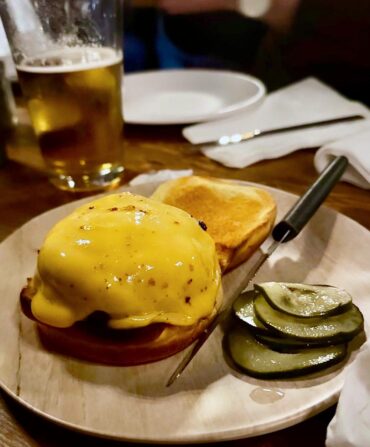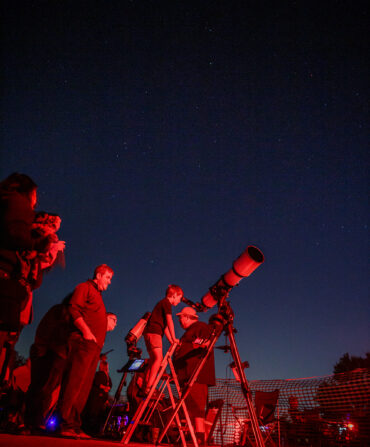The chef Analiese Gregory had all the accolades on paper—stints in some of the world’s top restaurants, including running Australia’s renowned Franklin—when she realized the rhythm of her life felt off. So she recently hit pause on her restaurant life and moved to rural Tasmania, where she began working on her beautiful and evocative new cookbook, How Wild Things Are: Cooking, Fishing and Hunting at the Bottom of the World.
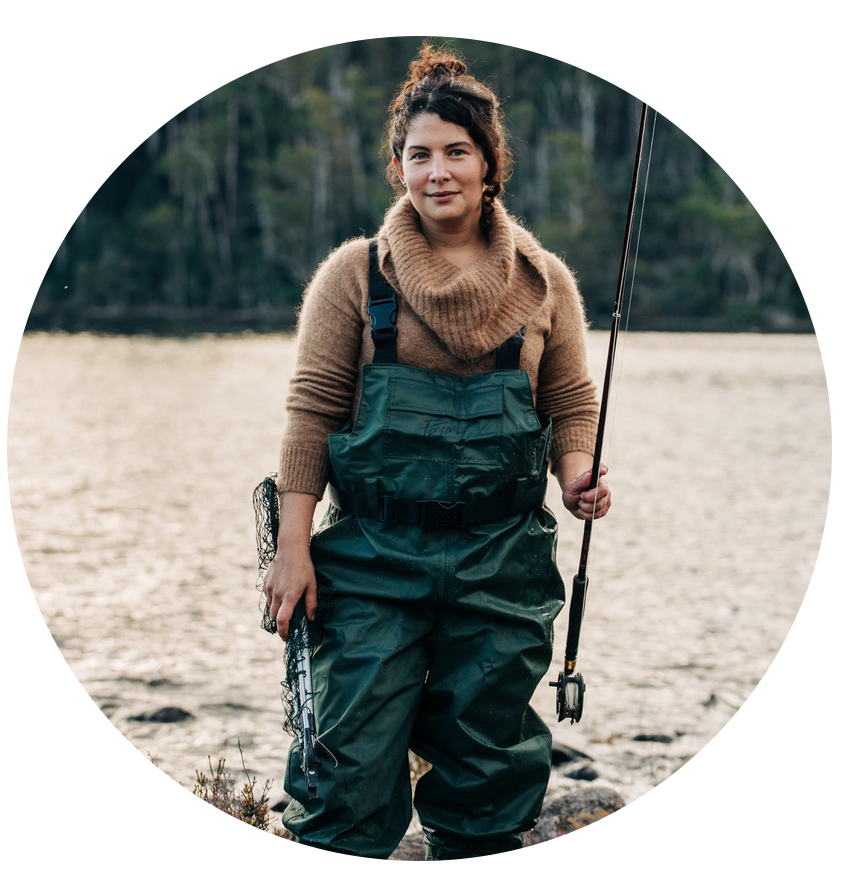
A lifelong forager, explorer, hunter, and fishing enthusiast who grew up on a dairy farm in coastal New Zealand, Gregory’s life story sounds something like a real-life cross between Island of the Blue Dolphins and Little House on the Prairie, but with kangaroos and wallabies. We spoke with the chef about slowing down, fishing, and how even continents apart, a love of the land and its ingredients connects people to one another, wherever they roam. And she shared three recipes with us: Brown Sugar-Cured Hot Smoked Trout, Cast Iron Potato Galette, and Mulberry Clafoutis.
One of the book’s themes is about slowing down and spending time outside. How do you protect your personal time?
I do find I often get caught up in the busyness of life and realize I’ve just been working and not spending time doing the things that I really enjoy. When that happens, I look ahead to my next free day and pencil in either a hike or a dive to take some time out for myself and get back to nature. Ideally these things can be spontaneous, but it’s better to plan them and actually achieve them than the opposite.
What’s some wisdom you learned during the pandemic that you hope to carry with you into the future?
Just to keep things in perspective. Last year life got stripped down to the basics for me, like lots of people. Now that things are picking up everywhere again, I don’t want to lose that sense of gratitude I had when restaurants reopened, for instance. I’m trying to appreciate everything a little more and keep that in my mind.
There’s a great part in the book where you talk about calling your mom for advice. Any good mom tips lately?
The most recent one is “Why are you buying seeds? I never buy seeds for the garden. Analiese, you have to be seed saving.” She has her moments and can be pretty funny. She’s also one of the most frugal people I’ve ever met.
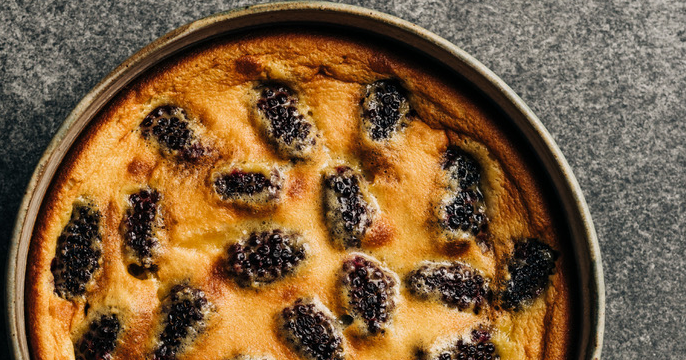
GET THE RECIPE: MULBERRY CLAFOUTIS
In the Southern United States, we feel a deep connection to the land and ingredients and their purveyors. That’s something that comes through so clearly in your work. Why is it important to protect the foodways of a particular place?
For me in Tasmania, the ingredients here, the producers, and the landscape are a large part of why I moved here. I don’t want to live in or imagine a Tasmania without those things, so it’s important for us all to look after our natural environment to ensure that we and the next generation can still enjoy it into the future.
Do you have any thoughts or perceptions of the South and its food?
I’ve never visited the South, but I’ve always been dying to. I love the feeling of it that comes through in books and movies set in the South. My favorite Southern dishes to cook at the moment involve corn, as there are a few really good growers in Tasmania. I’m obsessed with all types of cornbread, grits, and corn cooked on the fire. I made shrimp and grits three times last week and was feeding it to all my neighbors.
There are some stereotypes that Southerners are all about fried chicken and barbecue, which we love, but they are really our sort of celebration foods. Are there any foods you think of as celebration foods versus everyday foods?
I definitely think of crayfish as a celebration food. A whole smoked ham; a roast goose; or a duck. Especially because at the moment, these things only come into my life if I’ve raised a goose, or brined and smoked a ham, or gone diving with friends. So maybe it’s something about the hard-won nature of them that makes them special for me.
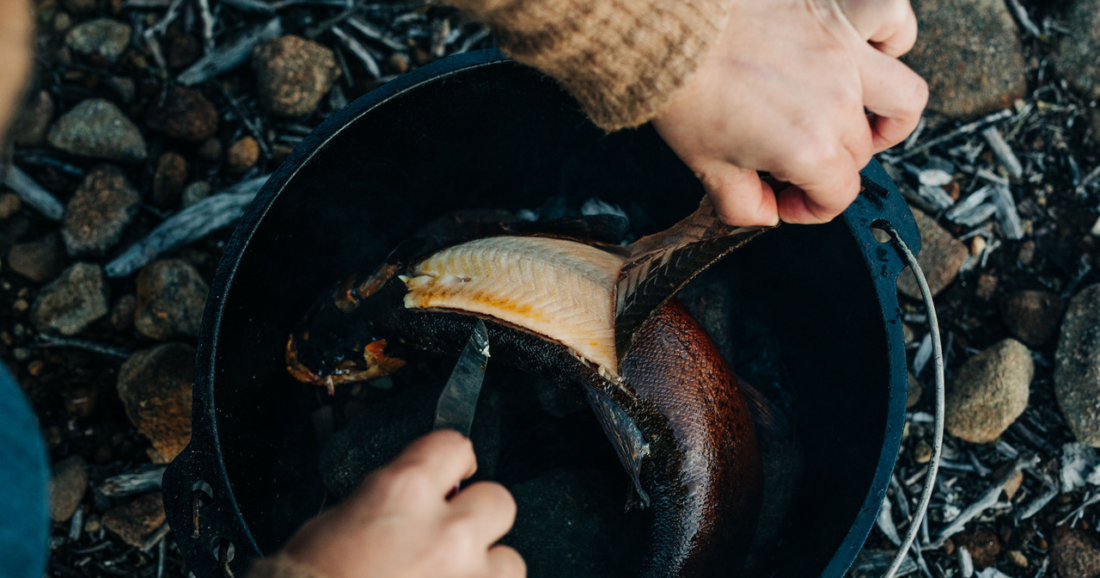
GET THE RECIPE: BROWN SUGAR-CURED HOT SMOKED TROUT
Got any advice for cooking with fish?
Think about how you’re going to process and store the fish and transport them home if you catch any. For a long time, I would go throw a line in and then be like, “Oh I’ve got no ice! And I’m three hours from home!”
Describe your favorite fishing spot or ideal fishing spot.
There is a wooden jetty on a small island called Satellite Island where it feels like you get a fish every time you throw a line in. It’s all the unglamorous species that live there, like wrasse, rock cod, and Australian salmon. But I have a theory that every fish can be good when super fresh—it’s just about finding the right way to treat and cook it. It’s a challenge.
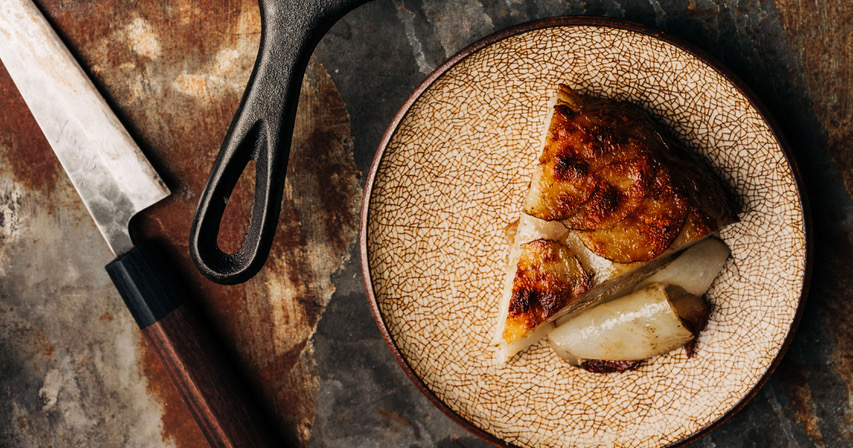
GET THE RECIPE: POTATO GALETTE


